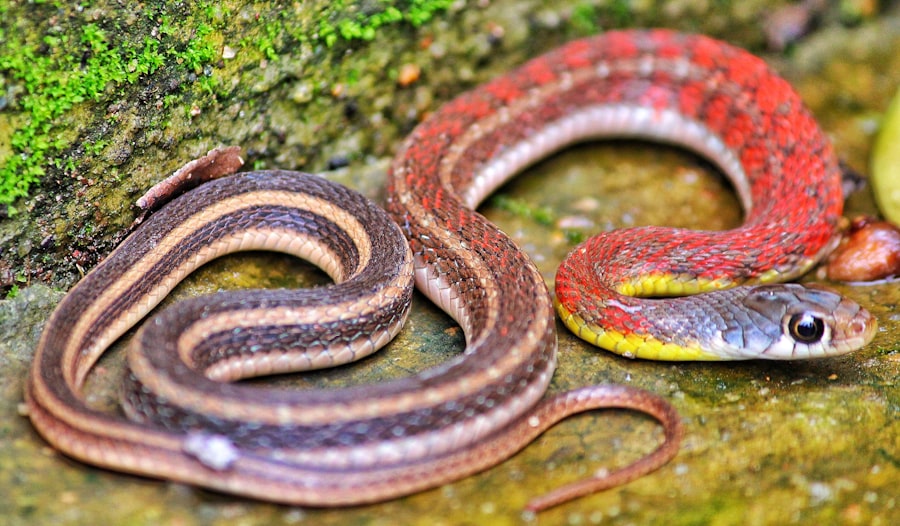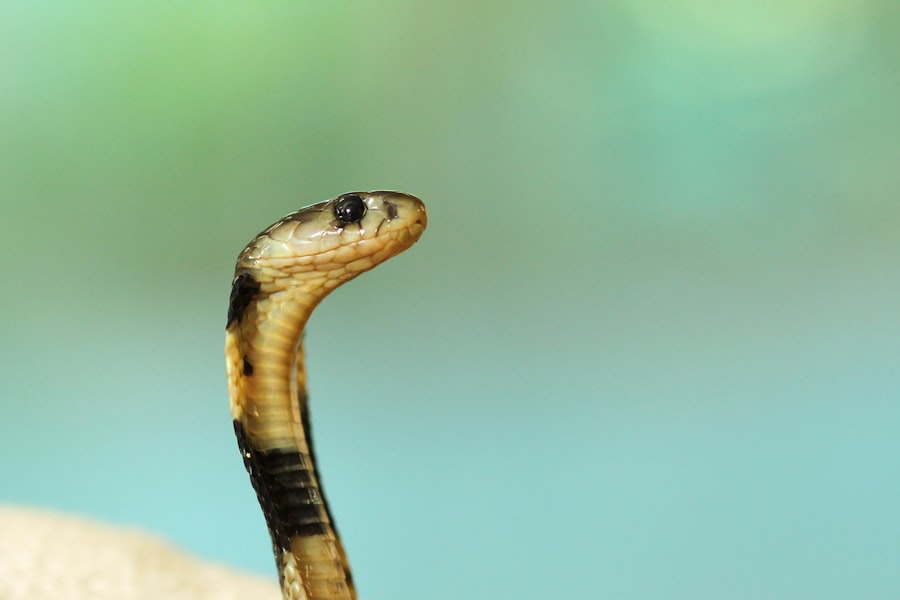Rat snakes are non-venomous constrictor snakes native to North America. These snakes are renowned for their exceptional climbing skills, often found in trees, bushes, and building rafters. As opportunistic feeders, rat snakes consume a diverse diet including rodents, birds, eggs, and insects.
They demonstrate remarkable adaptability, thriving in various habitats from forests and grasslands to urban environments. Generally shy and non-aggressive towards humans, rat snakes can become problematic when they target chicken coops for food. While beneficial to ecosystems due to their role in controlling rodent populations, rat snakes can pose challenges for poultry farmers when they prey on chickens.
To effectively prevent rat snakes from accessing chicken coops, it is crucial to understand their behavior and habits. By comprehending their climbing abilities, feeding patterns, and preferred habitats, poultry farmers can develop and implement strategies to protect their chickens from these snakes.
Table of Contents
Key Takeaways
- Rat snakes are non-venomous and are beneficial for controlling rodent populations
- Secure the chicken coop by sealing any gaps and using hardware cloth to prevent snake entry
- Remove food sources such as rodents and eggs to discourage rat snakes from entering the area
- Use natural repellents like cinnamon oil or clove oil to deter rat snakes from the vicinity
- Install snake fencing around the perimeter of the property to prevent rat snakes from entering
- Regularly inspect the surroundings for any signs of rat snake activity
- Seek professional help if rat snake infestation becomes unmanageable
Securing the Chicken Coop
Physical Barriers Against Snakes
Installing hardware cloth or mesh wire around the coop can help prevent snakes from slithering through small openings. Another vital aspect of securing the chicken coop is to ensure that the doors and windows are fitted with tight-fitting screens or mesh to prevent snakes from entering.
Maintaining a Snake-Free Environment
It’s also crucial to keep the area around the coop free of clutter and debris that could provide hiding spots for snakes. By keeping the surroundings clean and well-maintained, poultry farmers can reduce the likelihood of rat snakes finding shelter near the coop.
Landscape Management and Coop Security
In addition to physical barriers, it’s also important to consider the landscaping around the chicken coop. Keeping grass and vegetation trimmed can help reduce hiding spots for snakes and make it more difficult for them to approach the coop undetected. By implementing these measures, poultry farmers can effectively secure their chicken coops and minimize the risk of rat snake infestations.
Removing Food Sources

One of the key factors that attract rat snakes to chicken coops is the presence of food sources such as rodents and insects. By removing these food sources, poultry farmers can make the area less appealing to rat snakes. This can be achieved by implementing effective rodent control measures such as using traps or baits to reduce the rodent population around the coop.
Additionally, keeping the area around the coop free of spilled feed and grains can help prevent attracting rodents and other potential prey for rat snakes. In addition to controlling rodents, it’s also important to address any insect infestations around the chicken coop. Insects such as crickets and grasshoppers can attract rat snakes, so implementing pest control measures can help reduce their presence in the area.
By removing these food sources, poultry farmers can make the environment less hospitable for rat snakes and reduce the likelihood of them targeting the chicken coop for food. Furthermore, it’s important to properly store chicken feed and eggs in secure containers to prevent attracting rats and other rodents that could in turn attract rat snakes. By removing these food sources from the vicinity of the chicken coop, poultry farmers can effectively deter rat snakes from approaching the area in search of prey.
Using Natural Repellents
Natural repellents can be an effective way to deter rat snakes from approaching chicken coops. There are several natural substances that are known to repel snakes, such as cinnamon oil, clove oil, and cedar oil. These oils can be diluted with water and sprayed around the perimeter of the chicken coop to create a barrier that repels snakes.
Additionally, spreading these oils on surfaces around the coop can help deter snakes from approaching. Another natural repellent that can be effective against rat snakes is sulfur. Sprinkling sulfur powder around the perimeter of the coop can create a barrier that repels snakes due to its strong odor.
However, it’s important to use sulfur with caution as it can be harmful to other animals and plants if not used properly. Furthermore, planting certain types of plants around the chicken coop can also help repel rat snakes. Plants such as marigolds, lemongrass, and wormwood are known for their ability to repel snakes due to their strong scents.
By incorporating these natural repellents into the surroundings of the chicken coop, poultry farmers can create a deterrent that discourages rat snakes from approaching.
Installing Snake Fencing
Installing snake fencing around the perimeter of the chicken coop is an effective way to prevent rat snakes from gaining access to the area. Snake fencing is typically made of sturdy materials such as metal or mesh wire that is buried into the ground to prevent snakes from burrowing underneath. The height of the fencing should be at least 3 feet tall to prevent rat snakes from climbing over.
In addition to traditional snake fencing, there are also specially designed snake-proof barriers that are specifically designed to prevent snake intrusion. These barriers are made of materials that are too smooth for snakes to climb and are often used in areas where snake infestations are common. It’s important to regularly inspect the snake fencing for any damage or wear and tear that could compromise its effectiveness.
By installing snake fencing around the chicken coop, poultry farmers can create a physical barrier that prevents rat snakes from accessing the area and preying on their chickens.
Regularly Inspecting the Surroundings

Identifying Potential Entry Points
In addition to inspecting the coop itself, it’s essential to also inspect the surrounding area for any signs of snake activity, such as shed skins or tracks. By identifying these signs early on, poultry farmers can take proactive measures to prevent rat snakes from gaining access to the chicken coop.
Maintaining a Clean Environment
Furthermore, it’s vital to keep the area around the coop free of clutter and debris that could provide hiding spots for snakes. By maintaining a clean and well-kept environment, poultry farmers can reduce the likelihood of rat snakes finding shelter near the coop.
Staying Vigilant Against Infestations
By regularly inspecting the surroundings of the chicken coop, poultry farmers can stay vigilant against potential rat snake infestations and take proactive measures to prevent them from accessing their chickens.
Seeking Professional Help
In some cases, dealing with rat snake infestations around chicken coops may require professional assistance. Pest control experts or wildlife removal specialists have the knowledge and experience to effectively address snake infestations and implement long-term solutions for preventing them from accessing chicken coops. Professional pest control services can conduct thorough inspections of the surroundings and identify potential entry points for rat snakes.
They can also provide recommendations for implementing effective prevention measures such as installing snake fencing or using natural repellents. Additionally, wildlife removal specialists have the expertise to safely remove any rat snakes that have gained access to the chicken coop without causing harm to the animals or environment. They can also provide guidance on how to effectively deter rat snakes from approaching the area in the future.
By seeking professional help, poultry farmers can ensure that they receive expert assistance in addressing rat snake infestations around their chicken coops and implementing effective prevention measures for long-term protection. In conclusion, preventing rat snakes from accessing chicken coops requires a combination of understanding their behavior and habits, securing the coop, removing food sources, using natural repellents, installing snake fencing, regularly inspecting the surroundings, and seeking professional help when necessary. By implementing these strategies, poultry farmers can effectively protect their chickens from rat snake infestations and create a safe environment for their livestock.
If you’re looking for ways to keep rat snakes away from your chickens, you may also be interested in learning about interior ideas for chicken coops. This article on chicken coop interior ideas offers helpful tips and suggestions for creating a safe and comfortable environment for your feathered friends. By implementing some of these ideas, you can not only protect your chickens from predators like rat snakes but also provide them with a cozy and functional living space.
FAQs
What are rat snakes?
Rat snakes are non-venomous constrictor snakes that are commonly found in North America. They are known for their ability to climb and their preference for rodents as prey.
Why do rat snakes pose a threat to chickens?
Rat snakes are known to prey on small animals, including birds and their eggs. This makes them a potential threat to chickens and their eggs if they are present in the same area.
How can I keep rat snakes away from my chickens?
There are several methods to keep rat snakes away from chickens, including securing the chicken coop with tight-fitting lids and doors, using snake-proof fencing, and keeping the area around the coop free of debris and hiding spots for snakes.
Are there any natural deterrents for rat snakes?
Some natural deterrents for rat snakes include planting certain types of plants that repel snakes, such as marigolds and wormwood, and using essential oils like cinnamon, clove, and cedarwood around the coop area.
What should I do if I encounter a rat snake near my chickens?
If you encounter a rat snake near your chickens, it is best to contact a professional wildlife removal service to safely and humanely relocate the snake away from your property. It is important to remember that rat snakes are a valuable part of the ecosystem and should be handled with care.
Meet Walter, the feathered-friend fanatic of Florida! Nestled in the sunshine state, Walter struts through life with his feathered companions, clucking his way to happiness. With a coop that’s fancier than a five-star hotel, he’s the Don Juan of the chicken world. When he’s not teaching his hens to do the cha-cha, you’ll find him in a heated debate with his prized rooster, Sir Clucks-a-Lot. Walter’s poultry passion is no yolk; he’s the sunny-side-up guy you never knew you needed in your flock of friends!







